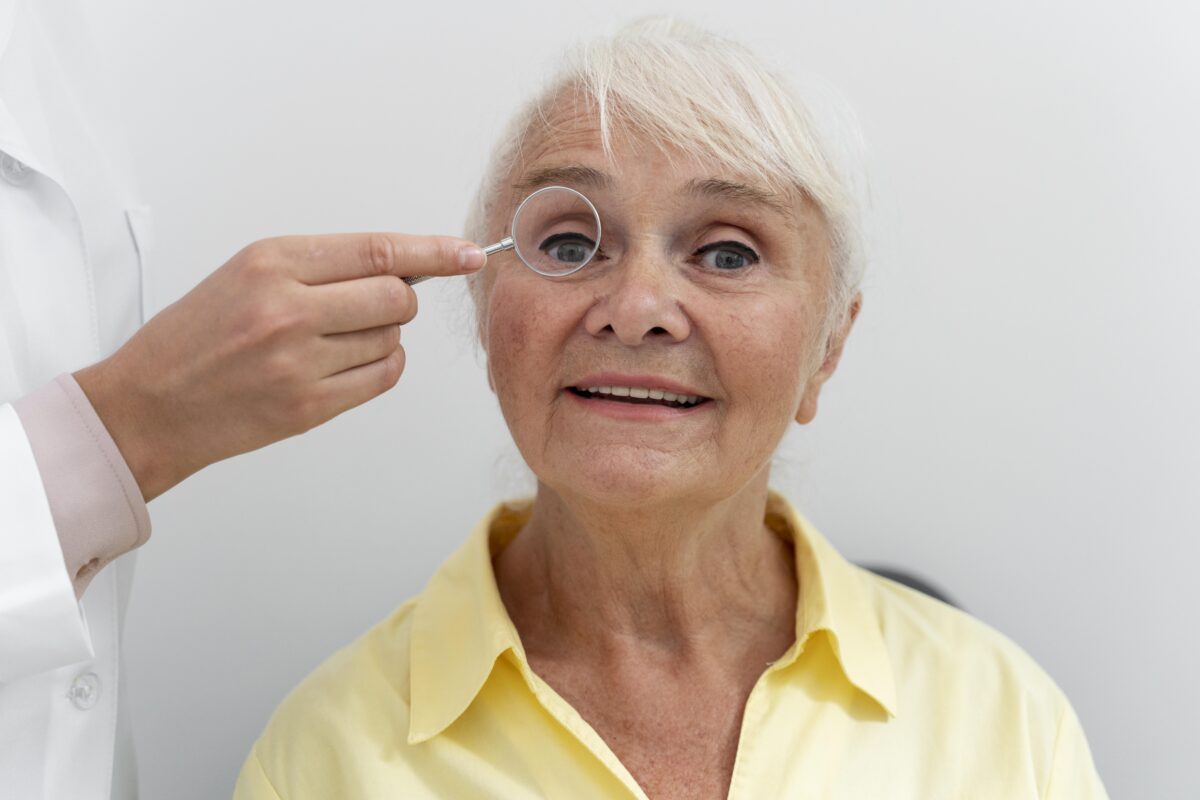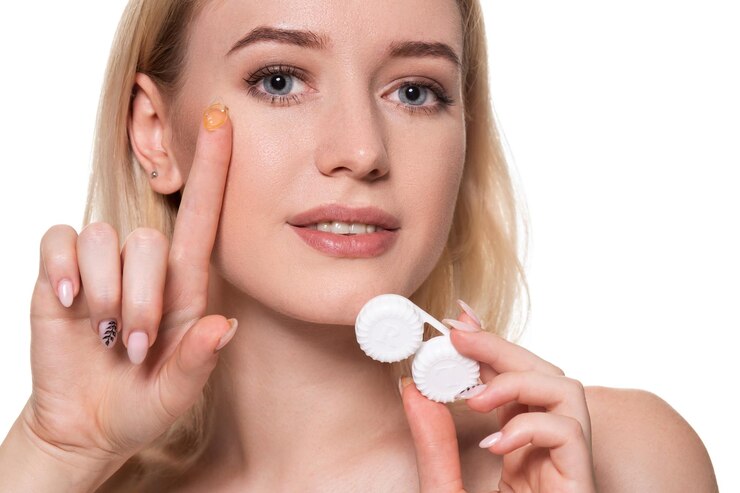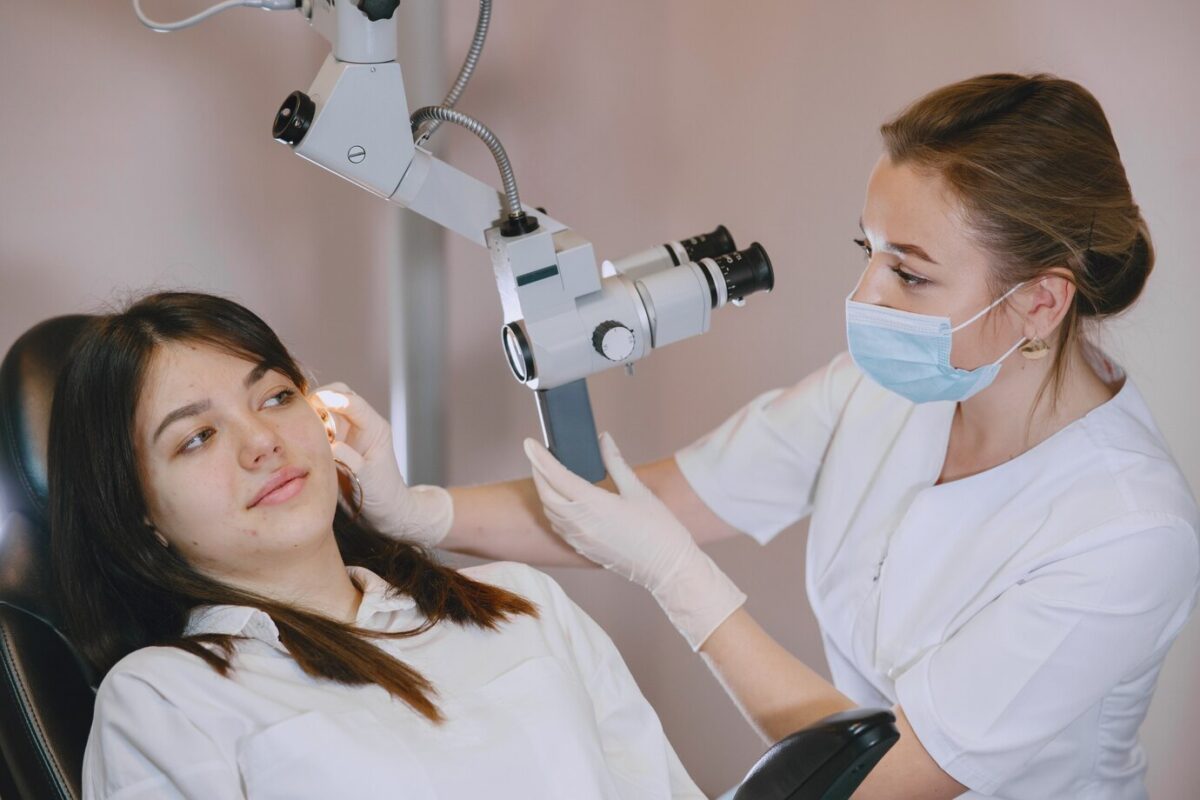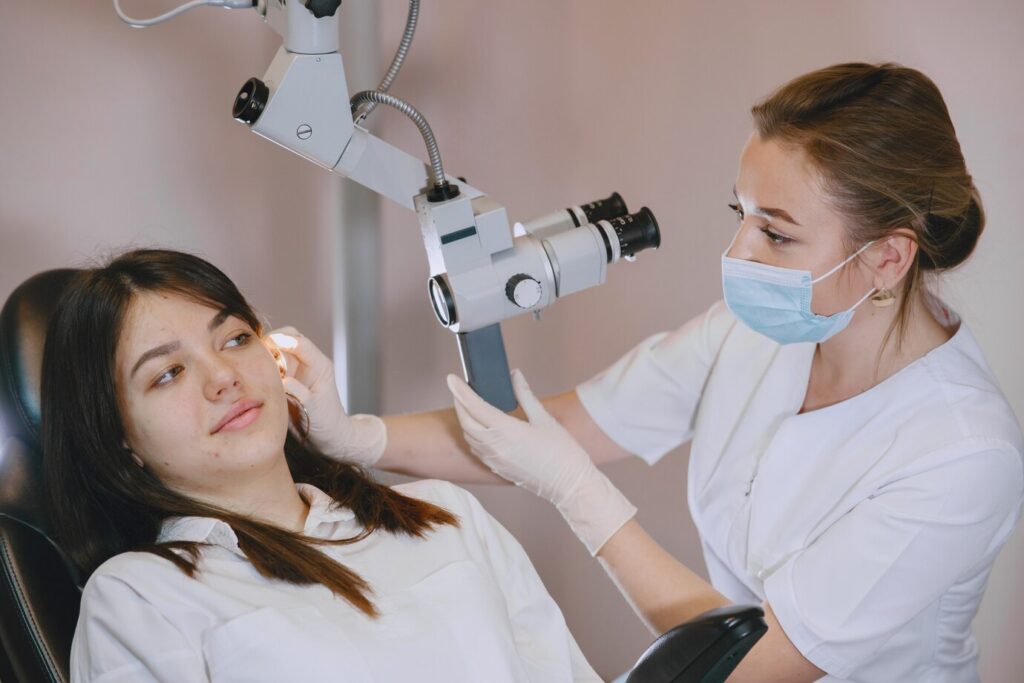Proven Methods for Managing Diabetic Retinopathy and Protecting Your Vision
December 3, 2024
Have Any Questions?
Please contact us, if you have any queries
Categories
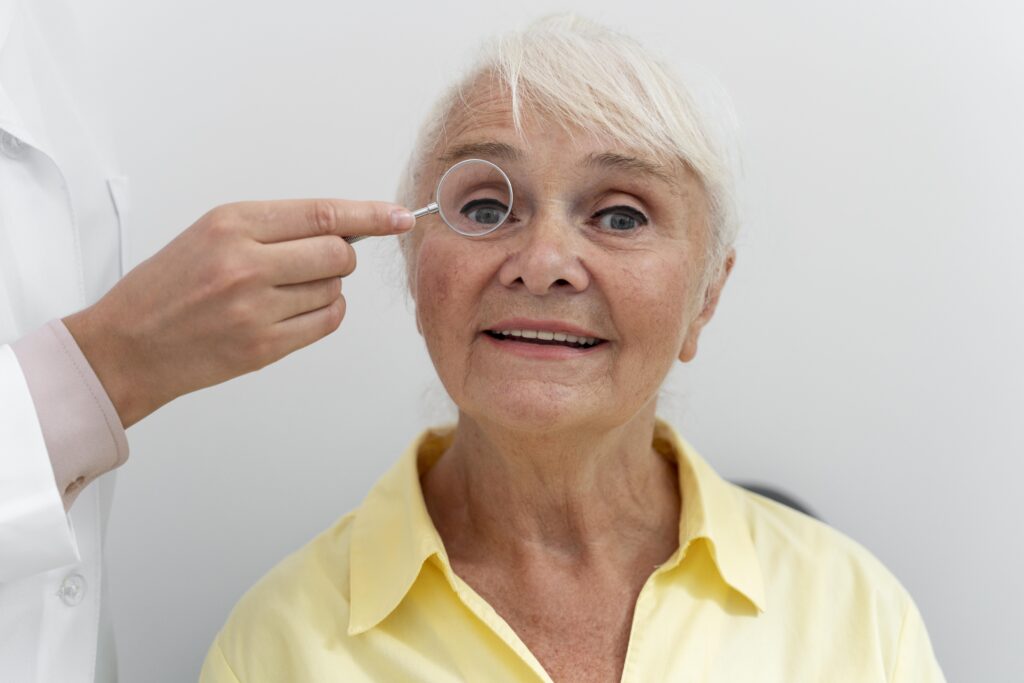
Diabetic retinopathy is a serious eye condition that can affect anyone diagnosed with diabetes, regardless of whether it is type 1 or type 2. As blood sugar levels remain uncontrolled, it can lead to damage of the blood vessels in the retina, which may result in vision impairment or even blindness. Since its establishment in 2008, Dr. Rani Menon Maxi vision eye hospitals has been at the forefront of comprehensive eye care, offering expertise and innovative treatments to help patients manage diabetic retinopathy.
Here we will discuss proven methods for managing this condition and the steps you can take to protect your vision.
Understanding Diabetic Retinopathy
Diabetic retinopathy occurs in stages, typically categorized into two main types: non-proliferative and proliferative diabetic retinopathy.
Non-Proliferative Diabetic Retinopathy (NPDR):
This is an early stage characterized by the swelling of the retina, the formation of small areas of fat, and the appearance of tiny blood vessels. Many patients may not experience symptoms at this stage, but it can lead to vision problems if left untreated.Proliferative Diabetic Retinopathy (PDR):
In this more advanced stage, new, abnormal blood vessels begin to grow in the retina. This can lead to bleeding and retinal detachment, significantly threatening vision.
Early detection and management of diabetic retinopathy can help slow progression and preserve vision. The following are some proven methods for managing this condition.
Regular Eye Exams
Seeing an eye care professional for regular eye exams is crucial for anyone with diabetes. The American Diabetes Association recommends that people with diabetes have their eyes examined at least once a year. Often, diabetic retinopathy can develop without noticeable symptoms, making it essential to have dilated eye exams to check for early signs of retinal damage. The skilled team at Dr. Rani Menon Maxivision employs advanced imaging techniques such as optical coherence tomography (OCT) and fluorescein angiography for early detection of changes in the retina.
Control Blood Sugar Levels
One of the most effective ways to prevent or manage diabetic retinopathy is to maintain stable blood sugar levels. Research has shown that tight glycemic control can reduce the risk of developing diabetic retinopathy. Patients should work closely with their healthcare teams to establish a personalized diabetes management plan that includes:
- Monitoring Blood Sugar: Regularly checking blood sugar levels can provide insight into your condition and help determine the necessary adjustments to your diet or medication.
- Diet and Nutrition: A balanced diet rich in whole grains, fruits, vegetables, and lean proteins can help manage blood sugar levels. Consultation with a nutritionist can further aid in making healthier food choices.
- Exercise: Routine physical activity improves glucose metabolism, leading to better blood sugar control. Aim for at least 150 minutes of moderate aerobic activity per week, such as walking, cycling, or swimming.
Control Blood Pressure and Cholesterol Levels
High blood pressure and elevated cholesterol levels can exacerbate the effects of diabetes on the eyes, making it crucial to keep these parameters in check. Patients should aim for blood pressure levels below 140/90 mmHg and cholesterol levels in a healthy range. Management strategies include:
- Medication: Follow your physician’s recommendations on blood pressure and cholesterol-lowering medications.
- Lifestyle Changes: Incorporating a low-sodium diet, engaging in regular physical activity, and managing stress can help control blood pressure and cholesterol levels.
Quit Smoking
Smoking increases the risk of developing complications related to diabetes, including diabetic retinopathy. Quitting smoking can significantly benefit your overall health, including your eye health. The support of healthcare professionals, counselling, and nicotine replacement therapies can assist individuals in overcoming nicotine addiction.
Advanced Medical and Surgical Treatments
Several medical interventions can manage diabetic retinopathy effectively:
- Medications: Anti-VEGF (vascular endothelial growth factor) injections can be used to reduce swelling in the retina and prevent vision loss. These injections target the proteins that promote abnormal blood vessel growth in the eye.
- Laser Treatment: Laser therapy can be used to treat both NPDR and PDR. This procedure creates small burns that target areas of the retina to reduce leakage and prevent further growth of abnormal blood vessels.
- Vitrectomy: For patients with severe complications, such as retinal detachment or bleeding into the vitreous, a surgical procedure called vitrectomy may be performed. This surgery involves removing the gel-like substance in the eye to allow better access to the retina.
Monitor and Respond to Symptoms
Patients with diabetes must remain vigilant and aware of any changes in their vision. Symptoms such as blurred vision, areas of vision loss, floaters, or flashing lights should be addressed immediately. Prompt consultation with an eye care provider can ensure timely intervention and treatment to minimize potential vision harm.
Education and Support
Understanding diabetic retinopathy and its implications can greatly enhance a patient’s ability to manage their eye health. Resources such as diabetes education programs, support groups, and counselling can provide essential information and emotional support. Dr. Rani Menon Maxivision eye hospitals offers educational resources to equip patients with knowledge about diabetes management and the importance of regular eye care.
Conclusion
Diabetic retinopathy is a serious condition, but with proactive management and appropriate interventions, it is possible to maintain good vision and overall eye health. Regular eye exams, controlling blood sugar, blood pressure, and cholesterol levels, and seeking timely medical treatment play significant roles in preserving vision for those with diabetes.
If you encounter any issues or discomfort or need expert advice on maintaining your eye health, Dr. Rani Menon Maxi vision Eye Hospital is here to assist. Contact us today to schedule an appointment with our expert eye care specialist and ensure your eyes remain healthy and your vision stays clear. Your eye health is our priority, and together we can work towards managing your condition effectively.

